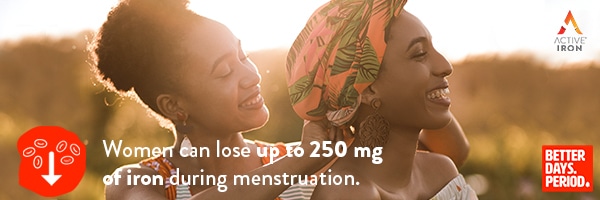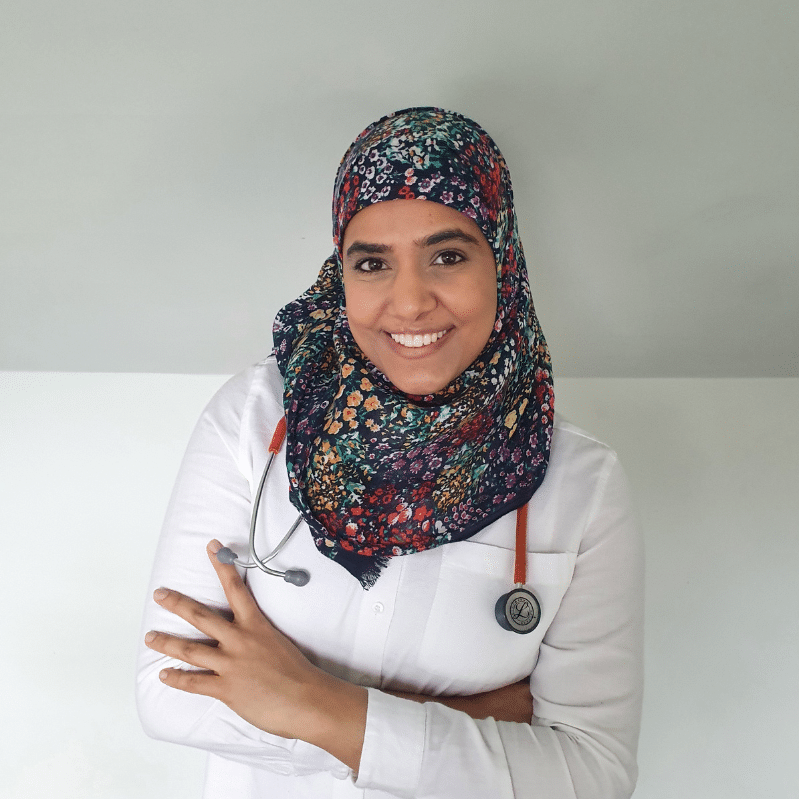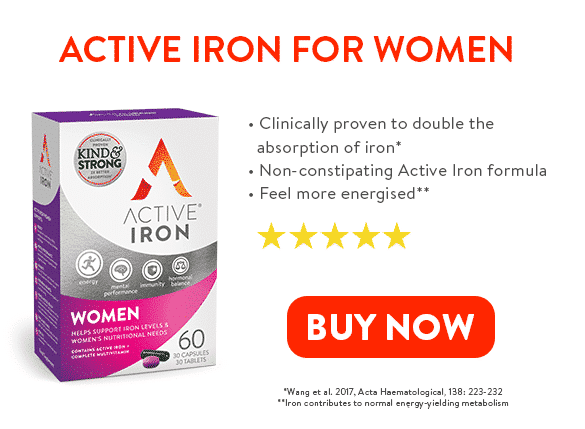In this post we will cover:
- Do Females Need To Take Iron Supplements?
- How do Iron Supplements Help Women?
- The Best Iron Supplement For Women
Women’s bodies rely on iron in order to support several key bodily functions, including bolstering a healthy immune system, maintaining energy levels, and transporting oxygen via red blood cells. Iron also plays a key role in supporting our immune system, metabolism, and cognitive function, and low iron levels can leave a person feeling fatigued and muddled.
Getting the right amount of iron is crucial to a woman’s physical health and mental performance, and those of reproductive age are especially vulnerable to inadequate iron levels, as pregnancy and menstruation are both leading factors in iron depletion. In fact, a woman can lose up to 250mg of iron during her period each cycle!

Since the body cannot produce iron on its own, we usually get it from our food. The most iron-rich food sources include animal proteins, such as red meat, as well as in plant-based sources like nuts and legumes. Unfortunately, the iron in plant-based sources is more difficult for the body to absorb, and many health professionals limit the upper intake of red meat to only 500g per week. In many cases, women turn to iron supplements, such as Active Iron, to address inadequate iron levels throughout their lifetime.
Do Women Need To Take Iron Supplements?
Without iron, our immune system suffers and our energy metabolism drops, causing tiredness and fatigue. Despite the importance of iron, nearly 2.1 billion people worldwide are living with low iron levels, regardless of their country of origin or their economic situation. Taking iron supplements alongside a healthy and balanced diet can be a great way to support iron levels. Women of childbearing age are especially disadvantaged when it comes to storing and maintaining iron levels, as they lose iron during their periods and throughout pregnancy.
Do Women Need More Iron?
Whilst women in general need more iron than men, women from ethnic minorities may need more iron due to heavier periods.
According to a recent US study 21.5% of Black pregnant patients had anemia, compared to only 9.6% of White pregnant patients, and from 2011 to 2020 the prevalence of anemia increased more than
100% among Black patients, and there was a persistent gap in prevalence among Black compared with White patients. 1
Research in the UK and Ireland found minority ethnic pregnant women (Asia, African or Caribbean) were more likely to have anaemia, 2 and African women in the UK had the lowest haemoglobin levels in the first trimester of pregnancy. 3
Source: Racial and Ethnic Disparities in Anemia and Severe Maternal Morbidity

How Do Iron Supplements Help Women?
During a woman’s period, her body naturally increases its rate of iron absorption to account for the blood loss, but this may not always be sufficient to rebuild those diminished stores. This is especially true for women with a low red meat intake, or those who experience heavy periods or have recently given birth. In fact, a survey conducted by Active Iron involving 2,400 women found that 64% experience menstrual tiredness and fatigue during their cycle.
When a woman gets pregnant, her need for iron increases substantially. In order to keep mother and baby happy and healthy, a woman needs to absorb two to three times the amount of iron as she did prior to pregnancy. And while women will typically have a blood test done between 15 and 20 weeks, the next blood check doesn’t come until the third trimester, resulting in many women experiencing inadequate iron levels throughout their pregnancies, without even realising.
The Best Iron Supplement For Women
Whether menstruating or pregnant, iron is vitally important to a woman’s health. Active Iron is a highly absorbed supplement*, meaning it is non-constipating and gentle on the stomach,** avoiding the gastrointestinal side effects usually associated with iron supplements. Click here to purchase Active Iron today.
* Wang et al. 2017, Acta Haematological, 138: 223-232
** Ledwidge et al. Data on file.

Dr Kiran Rahim
MBBS BSc MRCGP
Dr Kiran is a NHS Doctor, specializing in baby, child and adolescent health. She has worked across many London Hospitals and uses her own experience as a mother and south Asian woman to talk about key issues relating to women and child health.
Read more about our expert here.


